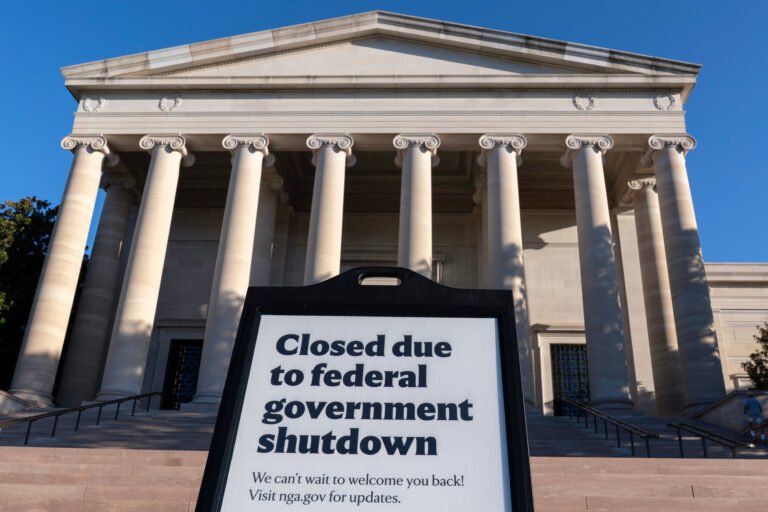A federal judge has indefinitely extended her order banning the Trump administration from mass firing federal employees during the government shutdown.
Following a hearing Tuesday, U.S. District Judge Susan Illston granted a preliminary injunction blocking reductions in force — better known as RIFs — at most major government agencies.
Barring further action by a higher court, Illston’s decision limits the Trump administration’s ability to continue downsizing the federal government and moves it has made to leverage the ongoing shutdown to cut federal programs and agencies favored by Democrats.
The Office of Personnel Management, the Office of Management and Budget “and the federal agency defendants are enjoined from issuing any more RIF notices because of the shutdown,” said Illston, a San Francisco-based Clinton appointee. The judge also barred the administration from implementing RIF notices issued during the shutdown and said she might hold further court proceedings to resolve disputes about some RIFs that were in the works just before the shutdown began on Oct. 1.
The Trump administration is expected to appeal Illston’s ruling to the 9th Circuit Court of Appeals. A Justice Department spokesperson declined to comment. OMB spokespeople did not immediately respond to a request for comment.
A Justice Department attorney defending the administration at the hearing Tuesday, Michael Velchik, said the firings were lawful and represented the will of the electorate expressed through President Donald Trump’s victory at the polls last year.
“The American people selected someone known above all else for his eloquence in communicating to employees that, ‘You’re fired!’” Velchik said, referring to Trump’s trademark line on his television show, “The Apprentice.”
However, Illston bluntly rejected the administration’s key arguments, including that the lapse in appropriations gave agencies new flexibility to fire workers because unfunded programs are no longer required by law.
“I think that’s completely wrong,” the judge said.
Velchik was undeterred. “I think that’s obviously correct. I think all three branches of government agree on that,” he said.
A lawyer representing the federal employee unions challenging the RIFs said that argument suggests Trump could permanently dismantle every federal agency simply because Congress failed to meet a funding deadline.
“What counsel is arguing is that if Congress lets funding lapse for one day, the president can fire the entire federal government. That is absurd,” the unions’ attorney, Danielle Leonard, said.
On Monday, one of the unions suing, AFGE, shifted its position in the shutdown fight. While it initially joined with other federal employee unions backing Democrats’ resistance to supporting a temporary funding bill, AFGE urged senators to support a three-week funding patch. It fell short in the Senate again Tuesday in a 54-45 vote.
Illston made clear at the outset of the hearing that she intended to issue an injunction that effectively extends a temporary restraining order she issued two weeks ago at the unions’ request. She called it “particularly ironic” that the federal employees sending out the RIF notices appeared to be violating the Anti-Deficiency Act, which prohibits the government from incurring expenses not authorized by Congress, but includes some exceptions for essential activities.
The judge also said she found some accounts from federal RIFed employees “very affecting.”
“I think it’s important that we remember that although we are here talking about statutes and administrative procedure and the like, we are also talking about human lives, and these human lives are being dramatically affected by the activities that we’re discussing this morning,” Illston said.
As an example, she cited an account by a RIFed Department of Housing and Urban Development employee who in a court filing on Oct. 21 wrote that she had never gone through anything as traumatizing as the current experience, including her combat deployment when she was in the Air Force.
The judge also mentioned another account filed in court on Oct. 21 from a RIFed IT specialist at the Centers for Disease Control and Prevention who has been working for the federal government for more than 40 years.
“After 40 years of service, she’s eligible for retirement, but no one at Human Resources can answer her questions about the RIF notice or retiring, because most, if not all, of the HR staff have also been RIFed,” Illston said about the woman. “This is her second RIF notice. She got one earlier in April that was later rescinded.”
That was part of a spring round of RIFs at the Department of Health and Human Services. Health Secretary Robert F. Kennedy Jr. said at the time that he sought to downsize the department by about a quarter, to about 62,000 employees.
Office of Management and Budget Director Russ Vought said earlier this month that he expected the total number of employees fired in connection with the shutdown would “probably end up being north of 10,000.”
Those plans appear to have been scaled back since then, partly due to resistance from other high-level officials in the Trump administration. Trump has said the firings and program terminations are aimed at getting Democrats to cry uncle in the budget fight by targeting constituencies and causes important to them.




